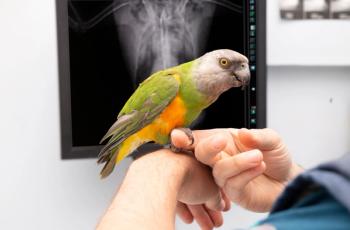
- August 2018
- Volume 3
- Issue 6
Getting Started With Telemedicine
Giving clients access to you at their convenience offers a plethora of benefits for your patients, your clients, and your practice.
Eighteen months ago, I was introduced to a smartphone app that helps me build better client relationships, supports my patients’ health more effectively, and increases revenue for my practice. What kind of app was it? A telemedicine app.
As the chief of staff at 2 practices, I know firsthand that being accessible to clients at all hours to answer questions is one of the quickest ways to convert customers into enthusiastic advocates for the practice.
RELATED:
- Telehealth: Bringing the Future to Veterinary Medicine
- First Video-Based Canadian Veterinary Telehealth Company Launched
I initially became motivated to investigate telemedicine apps when I realized I was already practicing telemedicine on a routine basis. Any time I answered a text, a Facebook message, or a phone call from a client about their pet, I was practicing telemedicine.
Telemedicine is an overarching term that refers to all technology used to deliver health information or education remotely. According to the American Veterinary Medical Association (AVMA), telemedicine is exchanging medical information regarding a patient’s clinical health status from one site to another via electronic communications.
Improved technology now gives us the ability to practice telemedicine in much more effective ways because the app provides upfront guidelines, ensures confidentiality, and is compliant with state regulations. It also allows veterinarians to give clients access at the clinician's discretion, which fosters a better work-life balance.
Benefits of Telemedicine
I’ve found that people want to be able to communicate with their health care professionals using the same technology they use to communicate with everyone else in their lives: their smartphones.
Offering clients more access to your practice, even if only to ask the simplest questions, can ease their anxiety and improve your relationship.
Although it may seem counterintuitive, implementing telemedicine in my practice has given me more free time. Surgery follow-ups, check-ins, and even writing prescriptions can be done via an app, allowing me to keep my clinic schedule open for patients that need to be seen on-site.
Telemedicine has also helped grow revenue. Once I let my clients with a valid veterinarian-client-patient relationship (VCPR) know that I can diagnose and prescribe through the app, they take to it quickly. Now, I do telemedicine consultations almost every day—and get paid for them.
What to Look for in a Telemedicine App
Dozens of available apps offer a variety of telemedicine services. Based on my experience, the app you choose should incorporate these 4 key characteristics:
- Legality: Most states, as well as the AVMA, require a valid VCPR for a veterinarian to diagnose, prescribe medication, or otherwise treat an animal via telemedicine. Make sure you are using an app that allows you to connect with pet owners with whom you have an established VCPR.
- Security: Privacy is important. A viable telemedicine app should store all information securely to ensure client and patient privacy—and ideally is compliant with the Health Insurance Portability and Accountability Act.
- Payment: You will be giving clients the same level of service they would expect if they had come into the office, so you should charge them as such. Look for an app that allows you to bill clients directly through its interface so you won’t have to manage the billing on your own.
- Accessibility: You may be concerned that clients will be calling and texting you in the middle of the night. To prevent this, select an app that allows you to go offline so your clients know that you are not available to answer messages when you’re sleeping, eating dinner with your family, or taking a vacation, for instance.
Additional considerations come into play as well. Your telemedicine app should:
- Be specific for health care professionals.
- Allow clients to text, call, and send photos or videos of their pets.
- Offer a library of educational materials that can be sent to clients as needed.
- Be accessible via smartphone as well as desktop and compatible with both Android and iOS operating systems.
- Let you set pricing.
- Allow for multiple clinic users so that team members can answer basic questions.
- Integrate directly with your electronic health records system.
- Have real-time video calling capabilities.
- Offer excellent customer support.
Dr. Smiley is chief of staff at 2 veterinary practices in Indiana. He presented on the topic of telemedicine at the 2018 Veterinary Innovation Summit in College Station, Texas, and the Indiana Veterinary Medicine Association annual meeting, where he was named 2018 INVMA president. Dr. Smiley uses the Medici telemedicine app.
Articles in this issue
over 7 years ago
Laser Therapy Todayover 7 years ago
MVC 2018: Advances in Feline Heart Disease Diagnosisover 7 years ago
New Look, Same Great Contentover 7 years ago
Vision in Dogs and Catsover 7 years ago
Animals and Airplanes: The Veterinarian's Roleover 7 years ago
ACVP 2017: Test-driving CARs to Treat Canine Lymphomaover 7 years ago
A Picture Is Worth a Thousand Likesover 7 years ago
Current Options for Managing Canine Osteoarthritisover 7 years ago
Pay Your (Future) Self Firstover 7 years ago
NY Vet 2017: Osteoarthritis in CatsNewsletter
From exam room tips to practice management insights, get trusted veterinary news delivered straight to your inbox—subscribe to dvm360.




